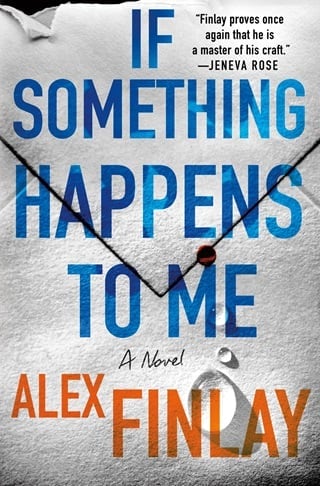Chapter 42
LACKFORD, ENGLAND
Ryan raises his hands, turns around slowly. He expects to see several police officers, guns drawn, but there’s only a single cop with a nightstick. He has red hair and a ruddy face and can’t be much older than Ryan. The officer turns even paler when he gets a look at the scene. He makes a panicked reach for his radio.
“I just found them,” Ryan says. “I didn’t have anything to do with this.”
The young officer holds the nightstick pointed at him, keeping him at a distance.
Ryan considers lowering his hands, offering them to be cuffed, but he doesn’t want to spook the cop. The U.S. has taught him a lot about the need to tread lightly with cops.
As the standoff stretches, the sound of cars, loud engines, cut the quiet. Feet stomp on damp grass. Ryan keeps his hands up high. A woman comes inside first, followed by two older guys. They don’t wear uniforms, so they either are detectives or came from home.
The woman—she has unruly brown hair that’s being overtaken by strands of gray, and a no-nonsense demeanor—takes in the scene. She remains calm, but Ryan catches her heavy swallow.
An hour later, Ryan sits in a windowless room at the station house.
Since the meeting at the Palazzo he’s been engulfed in anguish. The thought that maybe, somehow, Ali is still alive is buzzing through his entire body. It’s crazy, it’s magical thinking. But what if? If there’s even a trifling chance, he has to save her. He can’t let her down again. His mouth is dry and he’s having a hard time swallowing.
The woman detective from earlier comes into the room. She introduces herself as Tracy Suhr. She looks tired. They took his phone, so he doesn’t know what time it is. He guesses eight or nine o’clock. His stomach growls, but he has no appetite.
Suhr takes a seat across from him.
He thinks back to when Ali disappeared. The folksy, older Leavenworth sheriff sitting across from him, just like this. Asking questions carefully, in a nonthreatening manner. Then the interrogators from other agencies got more aggressive with their questions until Ryan’s lawyer shut it down.
“I’d like to make a call. I have a right to—”
The detective shakes her head. “We’re not in America, mate. It doesn’t work like that here.”
He feels a chill run through him.
She exhales, examines him. “How did you know Peter and Val Jones?”
The best course is to wait for a lawyer. Wait for a lawyer. His criminal law professor at Georgetown told him prisons would be half-empty if defendants simply kept their mouths shut. But he decides that the situation warrants the truth. As crazy as the truth may sound to this detective.
“I didn’t know them.”
“You were asking about Peter at the pub,” she says back.
Ryan realizes that he didn’t go unnoticed at the pub. Maybe the old barman told the young cop to go check on the suspicious-looking American who was asking about Jones.
“He tracked me down in Italy. I was on a trip for my school.”
Suhr’s expression turns curious.
Ryan takes a deep breath. And he tells her. Everything.
The detective stays quiet, but he senses extreme skepticism.
“Look at the sketch artist rendition. It’s Jones. Call my lawyer in the U.S. Hell, google it.”
The detective is all poker face, so it’s unclear whether she believes him.
“Look, I know it sounds crazy. But was Peter Jones American? Did he have missing pinkies? Did he move here five years ago?”
Suhr finally responds. “If you believed he took your girlfriend, that’s a motive.…”
“Look at me.” He holds up his hands, gestures to his clothes. “If I did that to them, there’d be blood evidence.”
Her eyes move to the table, as if conjuring the bloody scene at the groundskeeper’s home. “Whoever did this cut off his remaining fingers. Why would they do that?”
Ryan doesn’t want to think about that. But the answer comes to him readily: They were torturing him for likely one of two reasons.
To take revenge. Or to get information.
 Fullepub
Fullepub 



